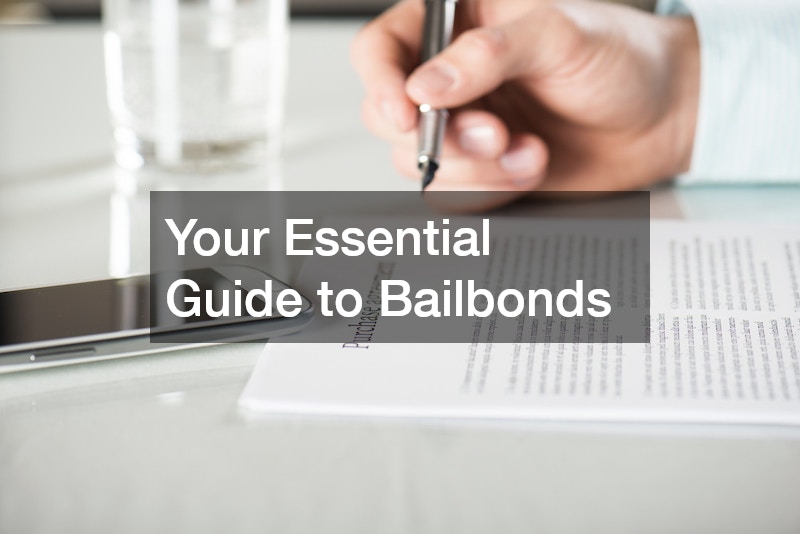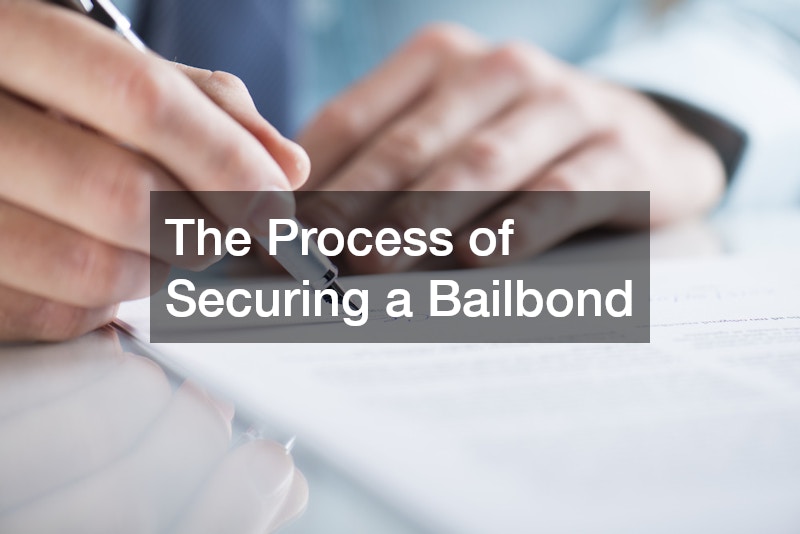
A bailbond is a financial guarantee that someone will appear in court after their release from custody. The concept of a bail bond allows a defendant to be temporarily released from jail, provided that a set amount of money or property is pledged to ensure they return for trial. This system is crucial as it helps prevent overcrowding in jails while also allowing defendants the opportunity to continue their daily lives while awaiting trial.
Most often, people turn to bail bond agents to help post bail, especially when the set amount is beyond their immediate means. By involving a bail bond agent, defendants usually need to pay only a fraction of the total bail amount.
The bail bondsman acts as a surety by pledging money or property to secure a defendant’s release. Typically, the bail agent charges a non-refundable fee, which is a percentage of the bail amount. In some jurisdictions, rules dictate the specific percentage that can be charged to clients. The primary role of a bail bondsman is to ensure that a defendant adheres to the court’s conditions and appears for their scheduled hearings. If the defendant fails to show up in court, the bail bondsman is responsible for paying the entire bail amount, making it a risky venture if the proper precautions are not undertaken.
The Process of Securing a Bailbond

Securing a bailbond typically begins immediately after a judge sets the bail amount during a bail hearing. At this point, the defendant or family members contact a bail bondsman to arrange for the bond’s issuance. The bondsman usually requires collateral, which can include real estate, cash, or other valuable items, to further ensure the defendant’s compliance. The chosen bail agent completes all necessary paperwork and posts the bail bond on behalf of the defendant, who is then released from custody. It’s important to note that all parties involved understand the gravity of the agreement and the responsibilities of the defendant while out on bail.
After posting bail, the defendant is obligated to meet various conditions imposed by the court and by the bail bondsman. This can often include regular check-ins, staying away from certain locations or individuals, and potentially electronic monitoring. Additionally, failing to comply with these conditions means forfeiting the bail bond, resulting in the defendant being taken back into custody and the collateral being used to satisfy the bail amount. The bail bondsman frequently becomes a crucial part of the defendant’s support network, reminding them of court dates and ensuring compliance with all bail conditions. Thus, the relationship between the bail bondsman and the defendant is not merely transactional but also somewhat supervisory.
The entire bailbond process underscores the intersection between the legal system and financial responsibility. For a first-time defendant, understanding the nuances of this process can feel overwhelming. As such, bail bondsmen often play an educative role, explaining the legal intricacies of bail, court proceedings, and the possible financial outcomes. By opting for a bail bond, defendants can mitigate some of the immediate financial burdens associated with the court process while concentrating on legal defense and personal responsibilities. Although securing a bailbond does involve costs, it’s a preferred route for many due to its expediency and relative ease of obtaining release compared to accumulating full bail amount independently.
The Rights and Responsibilities of Defendants
Once a defendant secures a bailbond, their life may seem more manageable, yet certain responsibilities must be upheld. Fulfilling court appearances remains the most significant duty, as any failure to do so can lead to a forfeiture of the bail and potential re-arrest. The responsibility extends beyond just court appearances; it involves ensuring good behavior while released and adherence to any conditions set by the judicial system. Additionally, maintaining communication with the bail bondsman is essential, as they serve as both a support and oversight authority during this period. The journey through the pre-trial phase is navigated successfully only with a commitment to these responsibilities.
Defendants have rights, even after being accused, and securing a bailbond effectively supports these rights. Legally, they are presumed innocent until proven guilty, allowing them to prepare their defense without the confines of a jail cell. Bailbonds provide the autonomy to maintain employment, support their families, and address any personal duties before trial. Recognizing these elements highlights the balance the bail system aims to maintain between the interests of justice and the personal freedoms of the accused. However, it’s imperative for defendants to fully understand their rights and the legal implications of their actions while out on bail to prevent further legal complications.
The bailbond system is not without its challenges and criticisms, yet it remains an integral part of the criminal justice system. Defendants should approach this resource with the due diligence it deserves, understanding both their freedoms and the obligations associated with it. Legal advice from attorneys and guidance from a trusted bail bondsman can provide clarity and support. Defendants and their families must remain informed and vigilant throughout the court process. As complex as the system may be, bailbonds offer a necessary bridge to justice for many who face criminal charges, ensuring that their rights are respected while awaiting their day in court.


